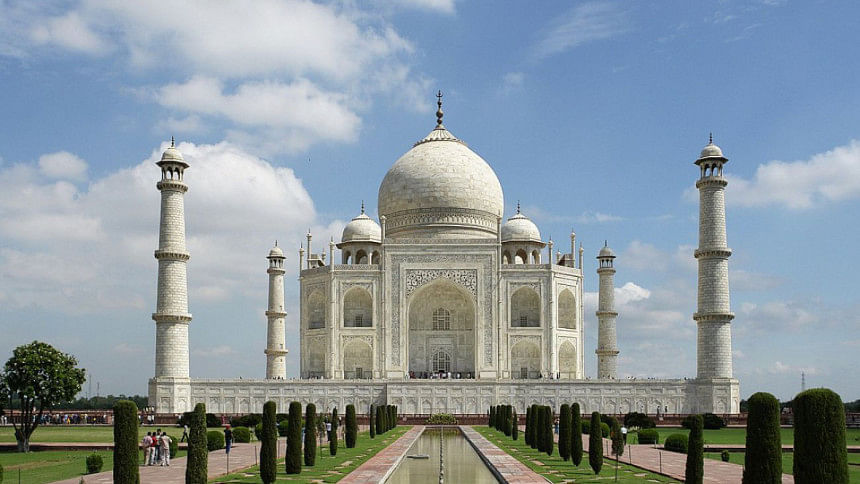Pay more to visit Taj Mahal

A visit to the Taj Mahal in India's Agra will cost more from April this year and foreign visitors may find the trip more comfortable with separate queues and a corridor from Agra railway station to the site and complimentary drinking water bottles.
India's Culture Minister Mahesh Sharma told media yesterday that it has been decided to revise the price of tickets for entering the Taj, one of the seven wonders of the world, from Rs 1,000 to Rs 1,250 for foreign tourists, and from Rs 40 to Rs 50 for Indian tourists.
The tourists will have to fork out additional Rs 200 for seeing the main mausoleum of the 17th century monument. At present, there is no separate entry fee for the mausoleum.
Sharma said the changes in ticket prices and limiting the duration of stay -- three hours from the entry time -- have been made to "preserve the Taj Mahal from damages caused by increasing number of visitors and for a better crowd management.
"We need to preserve the Taj for posterity. New 'barcoded' tickets would cost Rs 50 instead of the earlier Rs 40 and it would be valid only for three hours," according to the minister.
A recent report by the National Environmental Engineering Research Institute, which had conducted a study on Taj's load-bearing capacity, had recommended immediate steps to reduce the number of footfalls into the mausoleum to protect its integrity, Sharma said.
"We thought that capping the number of tourists per day was not a viable option but we had to do something. The hike in prices is not to generate revenue but to ensure that only people who are genuinely interested enter the area," Sharma said.
India's Supreme Court had recently directed Uttar Pradesh state government to submit a vision document on the preservation of the monument within four weeks.
Sharma also said the ministry had taken special steps to ensure the comfort for foreign tourists who pay Rs 1,250 for entry into the Taj Mahal.
Sharma said separate queues, separate toilets, and a safe corridor will be built for foreign tourists from Agra railway station to the Taj in collaboration with the Ministry of Aviation and Road Transport Ministry.
The minister pointed out that the government has already spoken to authorities concerned to stop the menace to touts around the Taj Mahal. "We are exploring how we can bring this menace to an end by bringing them under the ambit of serious offences and organised crime so that they can be booked accordingly," he said.
Sharma also said many tourists, both domestic and foreign, who visit the Taj are ambushed at the Agra station itself and the harassment continues during their stay in the city and the government is determined to stop this.
The Taj Mahal, commissioned in 1632 by the Mughal emperor Shah Jahan to house the tomb of his wife Mumtaz Mahal, became a UNESCO World Heritage Site in 1983 for being "the jewel of Muslim art in India and one of the universally admired masterpieces of the world's heritage".

 For all latest news, follow The Daily Star's Google News channel.
For all latest news, follow The Daily Star's Google News channel. 








Comments